I wanted to document the progress of my game Paradox Vector for the potential benefit of other game developers.
Idea
My idea started off fairly simple, make a vector graphics style first person shooter in the tradition of arcade classics like Battlezone, Tailgunner and the original Star Wars. The relatively recent resurgence of pixel art games had achieved a kind of peak, and I thought it was a good time to draw from this other retro graphic tradition for inspiration.
Paradox Vector in all it's retro FPS glory...
The idea did not end there though. Making a simple shooter was not enough for me, I wanted something else unique. That's when I remembered my idea for a non euclidean puzzle game that had been swimming around in my head for a while.
Add to the mix some Lovecraft references, and I thought I had a pretty good formula for a unique game idea.
Paradox Vector was released on Steam Early Access in April of 2019. It was meant to be a six month project.
Marketing
Marketing is something I had avoided on all my previous games, but Paradox Vector was going to be a hit (I was sure of it!) so that meant I had to reach out to people and tell them about it. Everything I know about marketing, I learned from Gabriel Del Santo of Pro Indie Dev.
In addition to things like posting on #screenshotsaturday, I also did a bit more in terms of market research. I found other games with a similar aesthetic, gameplay or story, and reached out to the journalists who had written about them. This yielded pretty good results, and articles were being written about my game.
I also used something called IndieBoost. Many Youtubers and Twitch streamers were playing my game for their followers. I think I probably did this too early, as the game had yet to be properly tested. Those folks did provide an awful lot of good feedback though, so it did help to improve the game, if not sell.
I also paid for some help in the P/R department. I used a company called the Amplifier Group to help coordinate with media outlets. They did help quite a bit in reaching out to some journalists, but I should also point out that some of the bigger events described in the upcoming paragraphs, like Realm's Deep, were secured before acquiring their help. I'm saying that not to diminish the importance of having good, professional PR, but to show that consistent effort on the part of a developer, and word of mouth can also work wonders.
The Amplifier Group started working with me in July 2020, and worked through to the game's release on October 15th.
The unique graphic style of the game did seem to garner some attention, and I was happy to see the game make its way into the public sphere.
Events
In October of 2019, Paradox Vector was included in the Fall Experiment, a fairly young gaming an tech convention in Milwaukee, Wisconsin. It was my first official game convention, and though it was not as crowded as I would have liked, it was still a great experience, and I felt like a real game developer when I was able to attend. I also met some great people there, and I keep in contact with them to this day. I truly wish there were more opportunities like this in the Midwest, as traveling to the big conventions like GDC and PAX is simply too cost prohibitive for me as a husband and father of seven hungry children.
Another highlight was Paradox Vector's inclusion in the GDWC (Game Development World Championship) and it's taking third place in the Fan Favorite category. This was the first time any of my games had won any kind of award or special recognition, so that was pretty amazing. Unfortunately, due to the pandemic, the actual award ceremony was delayed, and turned into an online event (instead if being able to visit Finland!) and I am still anxiously awaiting my prize in the form of a Finnish themed care package. Ultimately, this allowed me to put some official looking laurels in my game trailer, something I'd never been able to do before.
Between my Twitter posts, an article or two and some random curiosity, Paradox Vector caught the attention of the Motherload, host of the In the Keep podcast. As it turns out, the Motherload was working with 3D Realms, New Blood, Nightdive studios and other companies on the Realms Deep 2020 event. This was an online conference which would introduce a number of new games by the studios in question, but they had also decided to tap in to some of the smaller, independent game studios out there, and help to bring attention to this resurgence of the "boomer shooter."
Paradox Vector came at just the right moment to merit inclusion in this prominent event, and I had never seen such a great response from any single event, including the release days.
As a direct result of this event, Paradox Vector had an opportunity to be included in a 90's style demo CD, released by E1M1 magazine as a reward for their successfully funded Kickstarter campaign.
I am also adding to this the recent fact that Paradox Vector has made the Top 100 games in IndieDB's Indie of the Year 2020 event! This is another incredible accomplishment from the standpoint of a solo developer like me. I could not be more pleased with this. I will also mention that several other games from Realms Deep have made this short list, including Hedon, Ion Fury (which won last year), Wrath: Aeon of Ruin, and Doombringer (in the unreleased section).
Release & the Numbers
Let's get into the numbers now. At the time of release, October 15th 2020, Paradox Vector had exactly 3601 outstanding wishlists on Steam. Around 1500 of those had been a direct result of the Realm's Deep event in September. The week of the release brought sales. However, the sales during the Realm's Deep event one month earlier, were actually much higher. All things considered, if we include the Realms Deep event, it was my best game release, though still far from being any kind of major hit in the grand scheme of things.
I know a lot of people like to keep track of how many wishlists turn into sales at the time of release, and how number of reviews compare to number of units sold. I'm not sure how relevant this example is, since it had spent over a year in Early Access. Perhaps if I had avoided Early Access, the release day would have had more impact? It's hard to say though, maybe the game would have been more bug-ridden, as Early Access helps in revealing a lot of a game's flaws.
Here are what the sales looked like, without giving specific numbers.
Problems with the Release
First, let me say that the reviews on Steam were great during the Early Access phase. In fact, as I am writing this, the officially counted Steam reviews show a positive rating. That's incredible to me, as the game is a solo project made in a fairly old game engine using totally outdated graphics!
The only negative review on there is by someone who received the game for free (and thereby it does not count towards the total according to Steam's own algorithm) and he complained very legitimately about a poorly optimized save/load system that the game suffered from in its early stages. I have subsequently fixed that problem, and reached out to the reviewer in hopes of getting him to reconsider, but so far to no avail.
During Early Access, I took all the feedback people were giving on the forum, and implemented it as best I could. Technical problems and bugs were addressed. Improvements were made to the game's framerate and optimization. I added a map, and inventory panel that would give players a clear understanding of their goals and objectives. All these things to just tweak the game's clarity, and hopefully, fun.
Another issue which came up after the full release, was the realization that Nvidia cards seem to handle vector graphics (the way I made them) quite differently than AMD/Radeon cards. The result is that Paradox Vector seems to run at a much lower framerate on AMD/Radeon graphics hardware.
One final problem I want to address, that may complicate things further, has to do with the pricing of the game. When it first entered Early Access, I had set the price to $2.99. This was because it was a very different game back then. It had nine levels, and there was no navigating back and forth between areas at the time. Later, I decided to make the game more immersive, I included many Metroidvania style elements, like revisiting areas, finding upgrades and items to unlock secrets, and a grand total of 23 unique levels by the time the game was ready for release. This, I felt, merited the higher price tag of $9.99 on release. This change in price, and the lack of a launch discount could totally have impacted the number of sales the game procured on release.
As soon as possible (around 30 days) I put the game on sale, and recovered some of those lost sales from the release. However, it's tempting to think that having them at the same time would have increased the game's visibility, and that I may have missed out on some of its potential.
Conclusion
Perhaps calling this a postmortem is too soon. Perhaps the game's audience needs time to find themselves, and find the game, and who knows what the future holds for Paradox Vector. Ultimately, I don't really know what to make of the game's performance. It has the good reviews, the apparent interest and approval of journalists, enough positive impact to win competitions and get invited to events, but none of these can replace a community of players who simply enjoy playing the game. Thus far, sales remain lower than they would need to be to justify the time spent on development.
One major lesson I've learned is to seek out the added visibility of events, like Realms Deep. Though, I wonder how much control we as developers have over these things. Being in the right place, at the right time, with the right kind of game, and preparing yourself as much as possible is the only way to be ready when these opportunities arise.
However, there is something more important that came out of this experience that I really did not expect.
I have a few other games on Steam. One of them, called Star Explorers, was released in 2017 (Early Access) and 2018 (Full Release). When the Realm's Deep conference was being planned, I asked the coordinators whether I could submit the trailer for Star Explorers, and they were gracious enough to say yes. This was another valuable lesson ... if you want something, ask!
Here is the trailer they showed for Star Explorers at Realm's Deep. Somehow there are a couple minutes of extra footage on the end of this ... oops!
During this event, Star Explorers actually outsold Paradox Vector in terms of units sold (it is only $4.99 compared to Paradox Vector's $9.99 price tag) and I saw that the median time played was actually much higher on that game.
The number of comments and new reviews for Star Explorers exceeded those of Paradox Vector, and it seemed that the game had received a kind of second chance at life. Star Explorers is a procedurally generated space exploration game. It was conceived all the way back in 2013, and has been under development ever since. I was planning to update it to version 5.0, and that's what I am now doing.
Where Paradox Vector is a game that has a determined beginning, middle and end, Star Explorers is much more open. It's really up to the player where they want to go and what they want to do. Though it bears some superficial resemblance to the more popular No Man's Sky, it actually plays quite differently, something I describe in more detail here in this article...
Right now, I am working on a more immersive experience in Star Explorers. Here is a view of the hangar bay for the landing craft in the player's spaceship, a place you had to simply imagine in previous iterations of the game...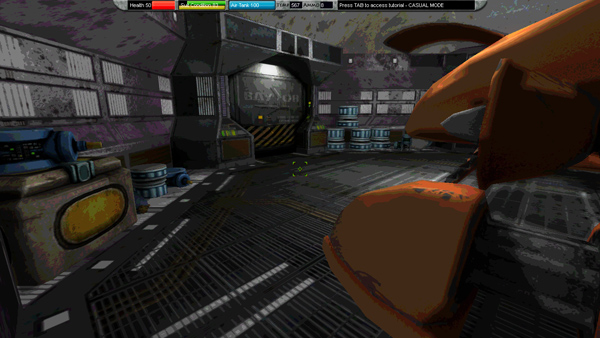
If anything, Paradox Vector helped me realize how much I still really like working on Star Explorer, and that the players like it too!
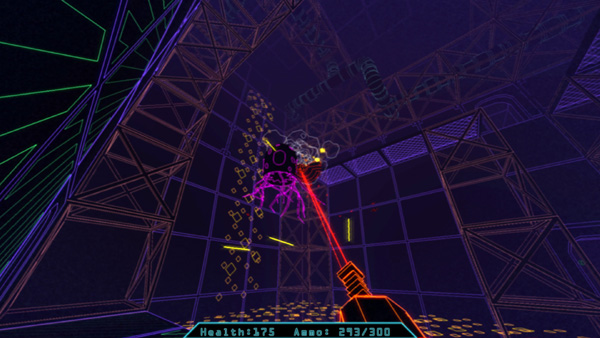
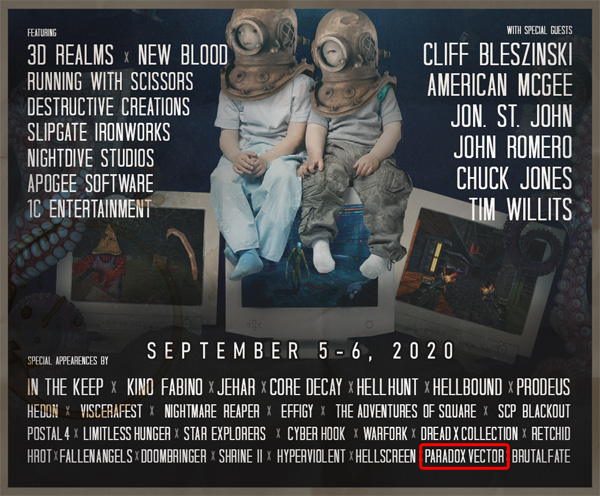
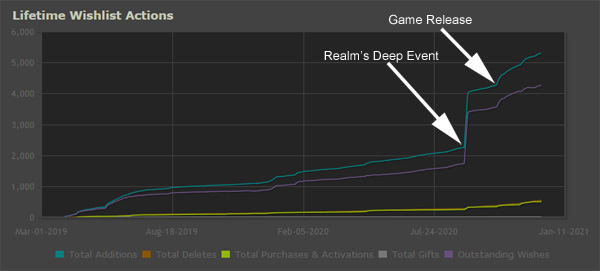
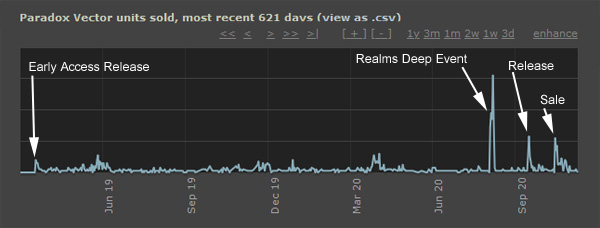








You just need more people to know your game.
Have you considered making a partnership with some retrowave artists? The gameplay of this game would look great on the background of some 80's synth. Could be a mutual deal and help you both, maybe get the video on the 80's Guy Channel.
Great idea! Yes, this has always been my biggest challenge, gaining visibility...
Really, thanks for this feedback!
Oscar here. Not joining the community (yet), but I wanted to tell you that it looks great, and you're a thoughtful person and a credit to the game dev community. I hope it comes together for you and you get the recognition (and sales) you deserve.
I played your game a few months ago and was actually looking forward to playing it for days (just like i used to play Minecraft), but the total downer was that i only knew where NOT to go, yet i had no idea on how to find a valid planet for landing safely and the navigation UI itself is terribly hard to navigate.
so after a very long time of fiddling with said UI, i found a planet that had a good temperature and it took me ages to get there, i found out it had no mass to land on.
also the player movement felt much like in those first 2,5D adventure games back in the late '80s.